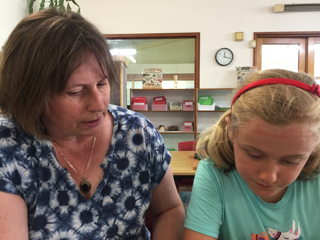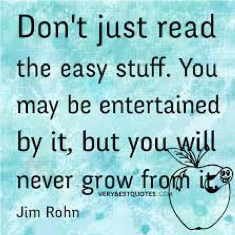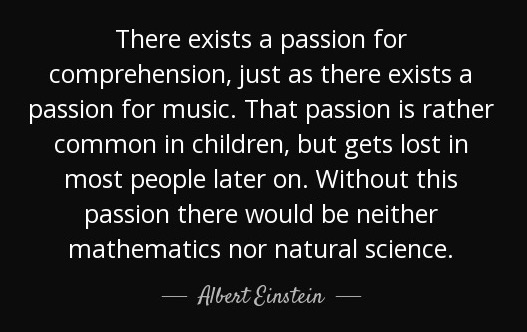Children's Comprehension

 Sarah Beresford–Jones, Inclusive Education Coordinator
Sarah Beresford–Jones, Inclusive Education Coordinator
Currently FMS is developing comprehension skills as one of our focuses. We all know that reading is of great importance, whether the child is reading aloud to an adult or reading silently, there is not much joy in reading if you do not understand the text. Comprehension is a conversation between reader and text.
Dr Montessori wrote about ‘Total Reading’ which describes the level at which reading is done with ease. At this level the reader can get accurate information, can communicate fully, and can read for pleasure. Total reading is the complete comprehension and interpretation of the thoughts of another. The aspects to total reading are: understanding the literal and implied meaning of the text; comprehending the thought, sentiment, and information expressed; recognition of style; and being aware of the cultural and historical context.
 At FMS the beginning materials in 3-6 classes aid children in their comprehension journey include: oral work (I spy games, sound games and sandpaper letters); classification games; action cards; puzzle words; grammar games; function of words; reading analysis; verb games enable acting out of the words read; and word study. Whilst in 6-9 and 9-12 classes a variety of comprehension activities are carried out that include reading aloud and silent reading.
At FMS the beginning materials in 3-6 classes aid children in their comprehension journey include: oral work (I spy games, sound games and sandpaper letters); classification games; action cards; puzzle words; grammar games; function of words; reading analysis; verb games enable acting out of the words read; and word study. Whilst in 6-9 and 9-12 classes a variety of comprehension activities are carried out that include reading aloud and silent reading.
SRA Reading Laboratories are a structured system that we use for teaching and developing essential reading skills. It has a multi-levelled approach which the children, after reading the story silently, answer a series of reading comprehension questions related to what they have just read.
 All children, who can read, are being assessed for reading and comprehension with the Fountas & Pinnell Benchmark Reading System. This starts with adults and peers reading aloud to children. Silent reading of a selected text is then carried out by the children. They are then asked about what they are reading to ascertain their level of literal and inferential comprehension.
All children, who can read, are being assessed for reading and comprehension with the Fountas & Pinnell Benchmark Reading System. This starts with adults and peers reading aloud to children. Silent reading of a selected text is then carried out by the children. They are then asked about what they are reading to ascertain their level of literal and inferential comprehension.
We have also recently introduced documentation (Reading Conferences) for adults to complete when asking about the child’s reading. There are nomenclature cards, e.g. Timeline of Man, which are short texts. The child reads and then presents what they have learnt.
Comprehension experiences
Metacognition: “thinking about thinking” and higher order thinking skills - ’I’m noticing’ or ‘I’m feeling’.
Schema: your feelings, experiences, thoughts and opinions wrapped up into one. Your child’s schema is theirs and no-one else has a schema like them - ‘That reminds me of’.
Inferring: what we figure out based on an experience, when information is implied, or not directly stated, which improves reader’s skills in drawing conclusions - ‘My guess is’ or ‘Maybe’.
Questioning: allowing children to learn that their own questions have value. Confidence soars and their thinking grows exponentially. When a reader finishes a good book, thinking goes on and on. Questions incubate long after the cover is closed - ‘I wonder’ or ‘What if’.
Determining importance: knowing how to single out and process what is meaningful and how to recognise and set aside distracters in text and in daily life - ‘What’s important here’ or ‘What matters to me’ or ‘one thing that we should notice’.
Visualising: each person’s images, which are unique and valuable. Being able to visualise makes reading so much more fun, to see or feel what is going on in the text - ‘I’m picturing’ or ‘I can imagine’.
Synthesising: about fusing our learning, unlearning and relearning - ‘Now I understand why’ or ‘I’m changing my mind about’ or ‘I used to think X but now I think Y’.
Now you have either read this description of comprehension silently or read it aloud what do you understand that you could tell someone else about?
